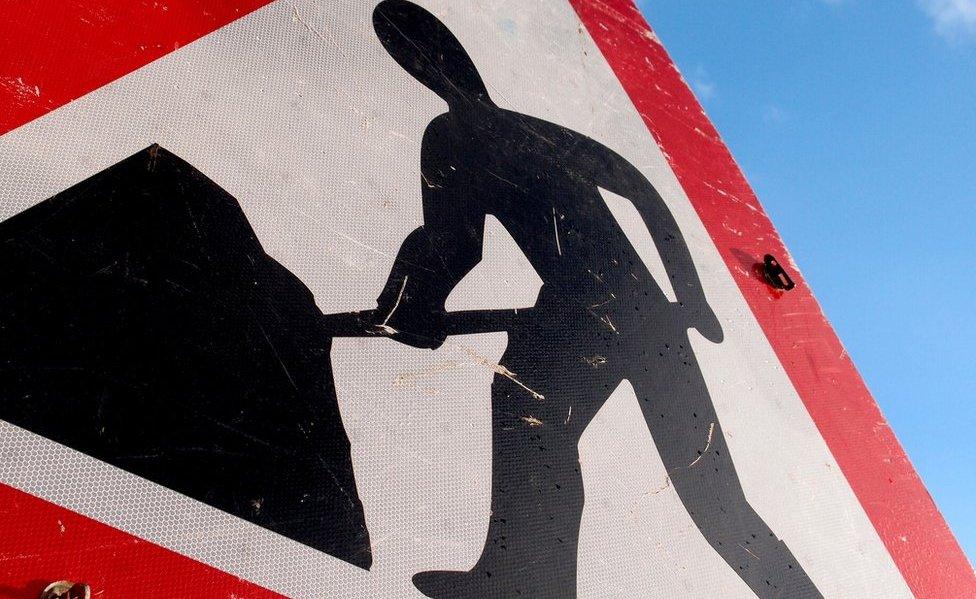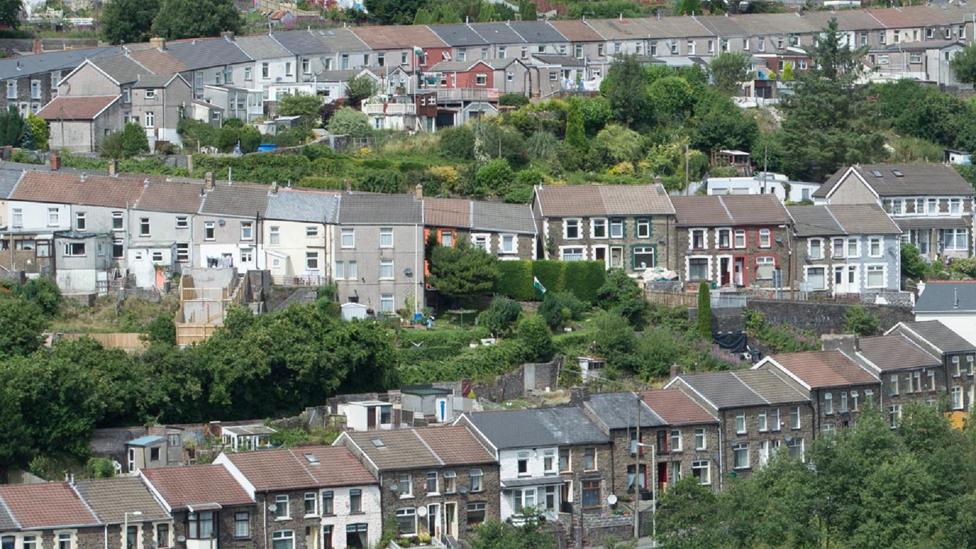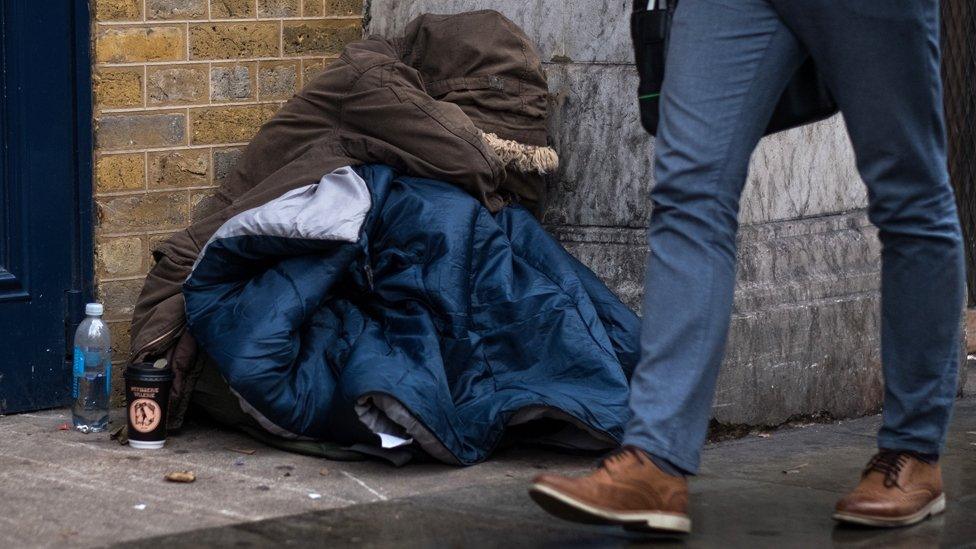Bridges near to falling down, warns council leader
- Published

Cuts to spending on highways work could "come back to haunt us in quite a drastic way", said Mary Ann Brocklesby
Bridges in Monmouthshire are "near to falling down", after more than a decade of cuts to its highways budget, the local council leader has warned.
Mary Ann Brocklesby said squeezing such infrastructure spending for too long would "come back to haunt us".
The Labour councillor said highways had been "cut to the bone" to protect areas like education and social services.
Ms Brocklesby was giving evidence to the Senedd's Finance Committee on the Welsh government's 2024-25 budget.
Councils across Wales have warned an average 3.1% rise in funding from ministers is nowhere near enough to cover the increased demand for services, and the higher cost of providing them, due to pressures including inflation.

Mary Ann Brocklesby said "services like highways have been cut to the bone"
Addressing the committee on Thursday, Ms Brocklesby described the situation councils like hers found themselves in as "an accumulation of 13, going on 14, years of austerity where, in order to protect services like education and social services, other services like highways have been cut to the bone".
"We are facing a real lack of investment in our infrastructure, and at some point that is going to come back to haunt us in quite a drastic way, I believe, in some cases," she said.
"Some of the bridges in my county are actually near to falling down, and we have to deal with it.
"But, in order to deal with it, we have to take money from elsewhere."
The Welsh government, which receives most of its money from the UK Treasury, has accused ministers in London of giving it an inadequate settlement while Conservative UK ministers maintain they have provided "record" funding to the Labour administration in Cardiff.
Last year, Ms Brocklesby said families being forced into temporary accommodation because of an affordable housing crisis was comparable to the aftermath of World War Two.

RHONDDA REBELS: A community team that became the best in British basketball
THE CRASH DETECTIVES: Every serious incident on the road requires forensic examination

Related topics
- Published20 December 2023

- Published2 January 2024

- Published13 April 2023
